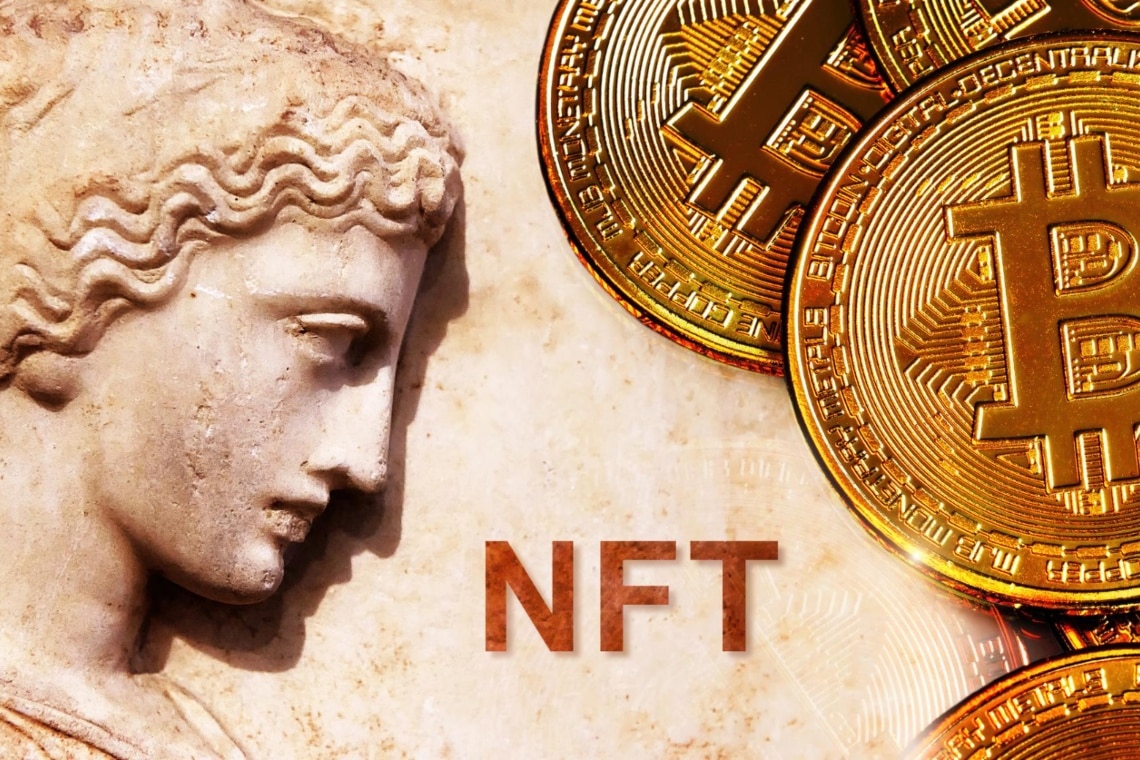Ordinals protocol has launched NFTs on Bitcoin’s mainnet dividing the crypto community between those who are against and polemic and those who are enthusiastic, telling how they are in favor of the project.
Summary
Ordinals and NFTs on Bitcoin
Ordinals is a protocol created by software engineer Casey Rodarmor, who officially launched the program on Bitcoin’s mainnet on 21 January last year, which allows NFTs to be created.
Inscriptions are made on sats, which are tracked and transferred using ordinal theory, which gives sats individual identities and allows them to be tracked and transferred across transactions.https://t.co/DtAddPfuPP
— Casey (@rodarmor) January 20, 2023
Essentially, the protocol enables Bitcoin’s version of NFTs, described as “digital artifacts” that can include JPEGs, PDFs, or video or audio formats. Rodarmor is a former Bitcoin Core contributor who designed Ordinals to enable the transfer of individual satoshi over the Bitcoin network.
Ordinals and Bitcoin NFTs: Rodarmor’s design
Thus, this involves using Bitcoin’s blockchain like that of Ethereum, Solana or Polygon, the current proof-of-stake blockchains pioneered by the NFT industry. Moreover, the Ordinals protocol would be a system for numbering satoshi, giving individual satoshi a serial number, and then tracking them in transactions.
Despite the fact that digital collectibles have been on Bitcoin’s blockchain since 2014, some are now expressing disappointment with Ordinals, while others are excited about the evolution the protocol would bring to the Bitcoin mainnet.
And indeed, on this subject, Rodarmor himself, in a roundup of tweets, comments on the controversy that has been brewing in recent days.
I welcome the debate and criticism! It is a sign of the health of the Bitcoin community. I encourage everyone to keep it civil and avoid personal attacks.
— Casey (@rodarmor) January 29, 2023
Ordinals’ Bitcoin NFTs: crypto community divided between naysayers and supporters
While Rodarmor takes the various controversies philosophically, here’s what the launch of his Ordinals protocol and Bitcoin NFTs has sparked.
The Bitcoin maximalist, CEO and co-founder of Blockstream, said:
"you can't stop them" well ofc! bitcoin is designed to be censor resistant. doesn't stop us mildly commenting on the sheer waste and stupidity of an encoding. at least do something efficient. otherwise it's another proof of consumption of block-space thingy.
— Adam Back (@adam3us) January 29, 2023
For someone else, Ordinals has become an affront to the principles of Bitcoin:
Marginalized peoples in developing countries will have to pay more to run their Bitcoin nodes and send transactions because privileged wealthy whites want to put JPEG drawings on the blockchain as status symbols. Just because you can doesn’t mean you should.
— Bitcoin is Saving (@BitcoinIsSaving) January 29, 2023
However, there are also those who enthusiastically support Ordinals and Bitcoin NFTs:
Why it's good:
– Brings more financial use cases to Bitcoin
– Drives more demand for block space (aka fees)My take:
– If you pay a tx fee, it's not spam.
– Bitcoin is permissionless. Can't stop anyone from building it anyway.— Dan Held (@danheld) January 29, 2023
NFT market: CryptoPunks dominate in terms of market cap
Since the beginning of this 2023, the famous CryptoPunks have returned to dominate the NFT scene. Indeed, according to NFTGo’s data, today the total market cap of CryptoPunks’ NFT collection amounts to 820,000 ETH, placing them first in the ranking.
Bored Ape Yacht Club’s famous NFT collection is also high in the NFT rankings, albeit by total sales volume.
In fact, BAYC ranks first in total sales volume, which now stands at over 972,000 ETH, compared to CryptoPunk’s 959K ETH
Moreover, from what has emerged, it appears that the 2023 sales volume increases are also coming from one particular NFT marketplace: Blur.
On the day of 2 January 2023, Blur had reported a total sales volume of over $98 million, surpassing the $97 million recorded on that same day by the infamous OpenSea.
Blur is an NFT aggregator, where users can compare NFTs across marketplaces and manage wallets with advanced analytics and thereby purchase NFTs.




